News
Meet the Organizations in the Indian Equitable Learning Ecosystem!
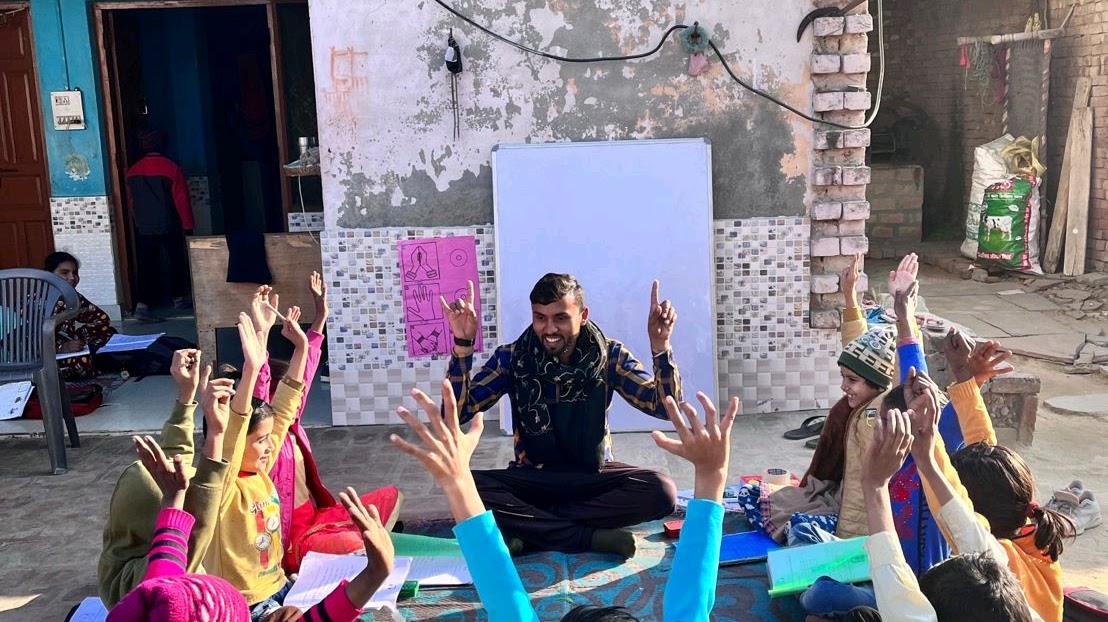
Details
The Indian Equitable Learning Ecosystem, brings together a group of dedicated Fellows from 9 organizations across India. Together, they are forging a movement for equity and gender inclusivity through computational thinking and coding.
Meet the Organizations in the Indian Equitable Learning Ecosystem -
Ranjhi Foundation

Ranjhi Foundation is dedicated to creating a society where every individual has equal access to opportunities, empowering them to lead dignified lives. The foundation was established by a group of young passionate individuals who, despite facing socio-economic challenges in their upbringing, pursued education and successfully graduated from prestigious institutions in India. Driven by their belief in the transformative power of education and a shared passion for social change, they aim to create collective efforts towards equal opportunity in communities across India.
Focus Area: Early Education, 21st-century Skills, Anganwadis
Locations: Pune and Hingoli District, Maharashtra
Impact: As a result of their initiatives, Ranjhi Foundation has empowered:
- 2,500 children
- 50 Anganwadi workers
- 48 parents
Objectives within IELE: As part of the Indian Equitable Learning Ecosystem Fellowship (IELE), Ranjhi Foundation has started their Vikas Ghar program and they plan to:
- Provide coding education to 100 children.
- Cultivate skills such as computational thinking, problem-solving attitude, and behavioral change aspects alongside coding education.
- Utilize coding as a tool to raise awareness about social issues within communities served.
- Empower children to develop rational opinions, critical thinking skills, and the ability to articulate problems through coding exercises.
Kalakeri Sangeet Vidyala
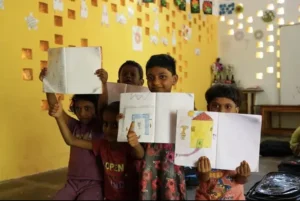
Kalakeri Sangeet Vidyala is committed to upholding the fundamental rights of children by empowering, supporting, and inspiring children from socially marginalized and economically disadvantaged backgrounds to unlock their full potential and achieve a better quality of life. They Approach this through a rigorous and holistic educational program complemented by engagement in the performing arts, all within a rural residential environment.
Focus Area: Education, Children Empowerment
Locations: Kalakeri District, Karnataka
Impact: As a result of their initiatives, Kalakeri Sangeet Vidyala has created a supportive community of 220 students, ranging from children to young adults. The institution is also supported by a committed team of over 75 staff members. Together, they cultivate an environment that promotes holistic growth and encourages students to chart their own paths to success.
Objectives within IELE: As part of the Indian Equitable Learning Ecosystem Fellowship (IELE), Kalakeri Sangeet Vidyala plans to:
- Integrate Scratch into regular classes.
- Develop a platform to create Teaching Learning Materials (TLMs) for teaching fundamentals of languages and math.
- Incorporate localization of sprites by including local and classical musical instruments.
Kshamtalaya

Kshamtalaya is dedicated towards achieving comprehensive school transformation through various approaches such as enhancing learning outcomes, reintegrating dropout students, instilling life skills development, and enhancing school governance to improve learning outcomes. Their aim is to create an environment where every child can unlock their true potential through education that is meaningful, relevant, and compassionate.
Focus Area: Education and Leadership, Entrepreneurship Skills
Locations: Kotra Block, Udaipur District, Rajasthan
Impact: As a result of their initiatives, Kshamtalaya has:
- Engaged directly with 3,000 learners.
- Reached 10,500 community members regarding various social issues.
- Reached approximately 2,000 teachers.
- Collaborated with 28 panchayats for community work centered on education and leadership.
- Conducted 166 learning festivals focused on enhancing teachers' and students' abilities.
Objectives within IELE: As part of the Indian Equitable Learning Ecosystem Fellowship (IELE), Kshamtalaya plans to:
- Utilize Scratch to create creative resources addressing pressing social issues of the region.
- Focus on topics such as child marriage, gender awareness through gender games, and promoting cleanliness in schools and their surroundings.
Anantmool
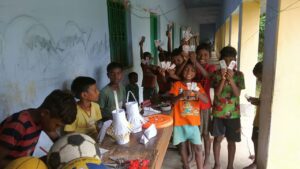
Anantmool's Gender-Free Education strives to create an environment free from gender distinctions or biases. Their goal is to remove all gendered elements from educational settings, curriculum, and interactions, aiming to establish a neutral space where children's experiences, opportunities, and expectations are not influenced by gender. Their vision is to shape a society where all children, regardless of gender, not only reach their full potential but confidently make their own life choices. They are actively engaged in nurturing educational leaders who can passionately advocate for gender-free education in India.
Focus Area: Gender and Education
Location(s): Nontara Village, Chakai Block, Jamui District, Bihar
Impact: As a result of their initiatives, more than 50 children now believe in their capacity to learn and thrive, regardless of gender barriers. These children have been consistently attending Anantmool's learning center for the past two years. Additionally, more than 5 young learners have embraced the concept of gender-free education and have even developed teaching skills.
Objectives within IELE: As part of the Indian Equitable Learning Ecosystem Fellowship (IELE), Anantmool is currently launching a fellowship program, with fellows and program managers already selected. Through IELE, they will train fellows using Scratch and other tools, empowering them to create stories that challenge gender stereotypes and provide basic coding skills to all children, regardless of gender expression or identity.
Indivillage Foundation
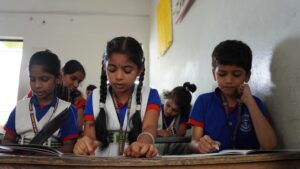
Indivillage Foundation is a nonprofit organization dedicated to bridging the learning and skill gap in rural India, primarily focusing on interventions in Karnataka and Andhra Pradesh. Their mission is to empower both present-day youth and the upcoming generation of children by equipping them with essential 21st-century skills for sustainable livelihood opportunities. With a commitment to eliminate gender disparities, the Foundation integrates a gender perspective into all its initiatives.
Focus Area: Education, STEM, and 21st-century skills
Locations: Seven blocks in Raichur, Karnataka, and one block in Yemmiganur, Andhra Pradesh.
Impact: As a result of their initiatives, Indivillage Foundation has empowered over 1,600 girls with coding and essential 21st-century skills, enabling them to make informed career and life choices across all seven blocks of Raichur, Karnataka, and in Yemmiganur, Andhra Pradesh. This year, the Foundation is actively working with 6,450 girls to enhance their technical skills and increase their participation in the STEM sector.
Objectives within IELE: As part of the Indian Equitable Learning Ecosystem Fellowship (IELE), Indivillage Foundation plans to enhance its curriculum by integrating Scratch Programming Language. This addition aims to improve brainstorming and problem-solving skills among their students, nurturing essential abilities for their academic and professional growth. Additionally, they anticipate networking with other organizations through the fellowship to exchange knowledge, ideas, and best practices.
Vanavil
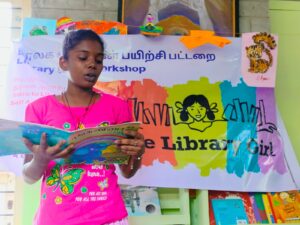
Vanavil is a 'Happy School' with approximately 108 children ranging from Pre-Kindergarten to 5th standard. Vanavil's mission is to empower women and children from nomadic communities in Tamil Nadu through a holistic approach covering education, livelihood, advocacy, healthcare, and nutrition initiatives. Founded on the principle that safety, freedom, trust, and friendship are essential for creating a conducive learning environment, Vanavil is dedicated to empowering nomadic and marginalized communities by promoting equality, embracing diverse identities, and upholding dignity.
Focus Area: Education, Women Empowerment, Child Protection.
Locations: Nagapattinam District, Tamil Nadu
Impact: As a result of their initiatives, Vanavil has facilitated the education of over 900 students from nomadic communities through the establishment of after-school centers.
Objectives within IELE: As part of the Indian Equitable Learning Ecosystem Fellowship (IELE), Vanavil plans to:
- Develop a comprehensive lesson plan on computational thinking for students, utilizing the Scratch platform.
- Customize Scratch sprites to authentically represent diverse Indian contexts, incorporating a wide array of indigenous animals and culturally significant elements.
- Provide translations of Scratch blocks into Tamil, facilitating a deeper understanding of computational thinking principles among learners in their vernacular language.
Learning Initiative for India (LIFI)
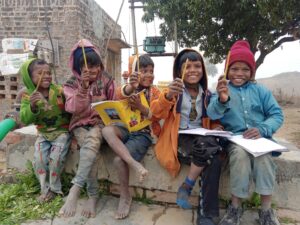
Learning Initiative for India (LIFI) aims to establish a network with nonprofits and government bodies using Community Teacher Leaders (CTLs) to ensure universal access to education nationwide, covering formal schooling, open schooling, and vocational training. Through the LeAD UR India (Leadership and Development in Urban and Rural India) Fellowship, a two-year paid program, they train CTLs to teach foundational skills in government schools and community centers. By 2025, they aim to provide access for 10,000 children to local youth teachers, facilitating their integration and retention through partnerships with nonprofits and government bodies.
Focus Area: Enabling access to education, integrating at-risk children into mainstream education, and ensuring their continued retention in the formal education system.
Locations: New Delhi (West and North West District); Surat, Gujarat; Patna, Bihar; Khargone and Sagar, Madhya Pradesh; Sonipat, Haryana
Impact: LIFI’s approach has benefited 1,500 children across five states through 37 Youth YTLs, achieving an 85% success rate in reintegrating them into regular schools and a 50% improvement in their learning levels.
Objectives within IELE: As part of the Indian Equitable Learning Ecosystem Fellowship (IELE), their aim is to equip children above Grade 5 with digital learning skills, critical thinking skills, and problem-solving abilities. Through various projects, the aim is to empower children and CTLs to address significant community issues collaboratively, overcoming barriers to enhance retention in the education system.
Gramothhan
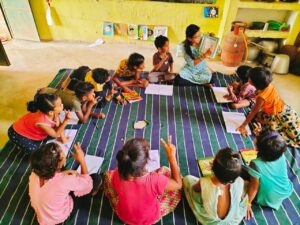
Gramothhan is a non-profit organization committed to quality education, aiming to enhance learning experiences through active collaboration with Public Primary Schools and by focusing on community involvement. Gramothhan places a strong emphasis on pedagogical solutions, advocating for innovative teaching methodologies that cater to the specific needs of rural and tribal children. In addition to this focus, the organization is committed to school support, investing in initiatives aimed at enhancing student learning outcomes, regularity, teacher training, and the creation of learning resources. Beyond the classroom, Gramothhan nurtures the next generation of leaders through empowerment programs, cultivating youth leadership skills, critical thinking abilities, and a strong sense of responsibility.
Focus Area: Quality education for rural and tribal children of Odisha, with a special focus on Primary level students.
Locations: Sonepur District, Odisha.
Impact: As a result of their initiatives from 2017 to now, Gramothhan has:
- Reached out to over 5,000 students from government primary schools in rural and tribal areas.
- Engaged more than 40 government school teachers.
- Involved over 1,000 community members.
- Built the capacities of over 30 youths.
Objectives within IELE: As part of the Indian Equitable Learning Ecosystem Fellowship (IELE), Gramothhan plans to:
- Implement a targeted intervention at their established Community Learning Center, benefiting 15 students currently enrolled.
- Lead classes dynamically, with fellows taking turns, resulting in three engaging sessions scheduled per month.
- Focus primarily on Foundational Literacy and Numeracy (FLN) through a series of interactive activities, such as math and language tasks on Scratch, local community stories, and other localized activities.
Odisha Rising Foundation
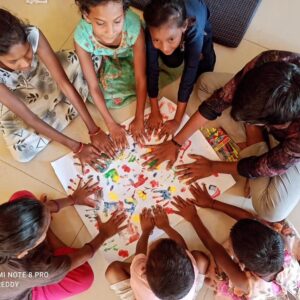
Odisha Rising Foundation is a social enterprise dedicated to empowering underserved communities across Odisha through innovative projects and technological interventions. By engaging in direct action and partnerships, ORF collaborates with various stakeholders to curate, connect, catalyze, and communicate the vision of a new Odisha that extends beyond its urban centers, promoting self-reliance and autonomy while enabling individuals to lead lives filled with dignity and self-worth. With a specific focus on rural and tribal development, the organization is dedicated to driving positive change throughout the region through collaborative co-creation and cooperation efforts.
Focus Area: Rural and Tribal Empowerment
Locations: Odisha; 12 districts, including 5 aspirational districts.
Impact: As a result of their initiatives:
- 12,500 children have received quality education and STEM learning through school adoption and the Re-Tuition Lab Program.
- 3,500 youths have been employed after skill training and entrepreneurship programs.
- 3,600 women have been empowered through financial inclusion and digital literacy.
Objectives within IELE: As part of the Indian Equitable Learning Ecosystem Fellowship (IELE), Odisha Rising Foundation aims to:
- Establish STEM clubs in 25 schools
- Provide STEM kits to 25 schools
- Implement a mix of plugged and unplugged activities in 15 schools
- Train 100 teachers and volunteers
Their holistic approach will integrate technology, such as Scratch programming, and non-tech elements to cater to diverse learning styles. This initiative will impact 5,500 children, 60 schools, and 12,000 parents and community members in the districts of Koraput and Kalahandi.